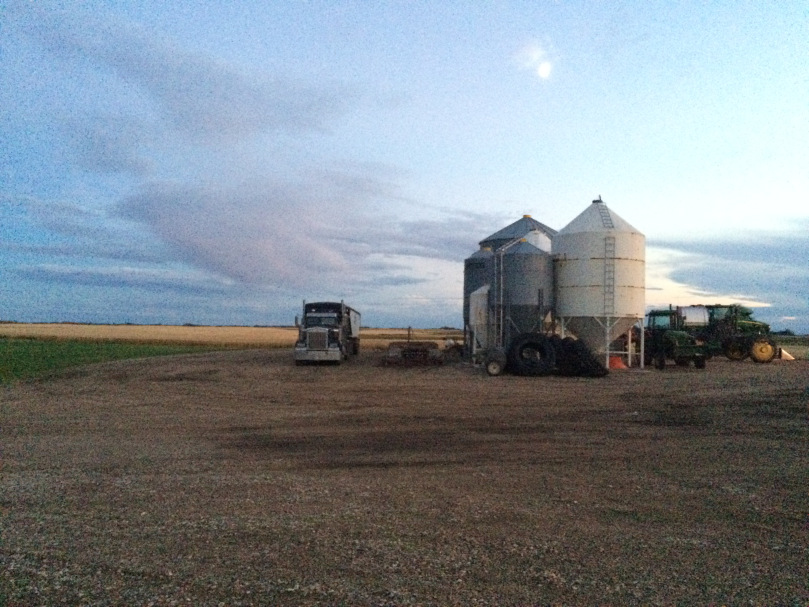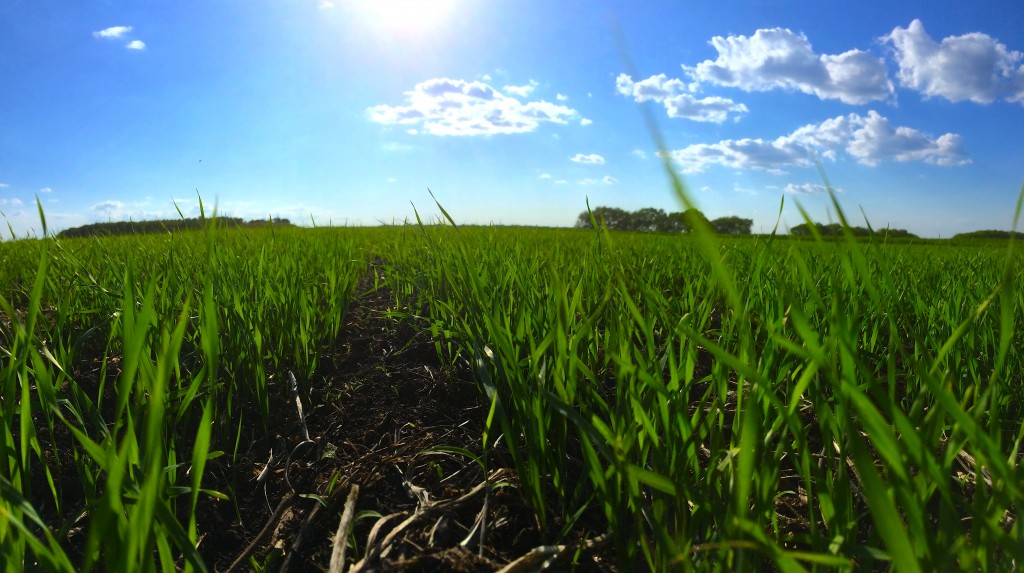|
Tonight in Ontario is the Harvest Moon – a signal to past generations that the crop was ready. I thought it was fitting to reflect (pardon the pun) on my recent trip to Manitoba. Months ago, I was lucky enough to be invited to a Food & Farm trip during harvest time in the prairies. All expenses paid, yes. What did they ask of us all participants? NOTHING. Yes, I truly mean that. How they picked us all, I don’t know – the only connection I can figure out was our love of good food!
After settling in to my regular life, I have had a few days to gather my thoughts (and my sleep). I am sure to blog about my specific experiences of a whirlwind 3 days but this summary at least represents the table of contents.
The most sincerest Thank You goes out to:
Sandra Venneri, BSc, P.H.Ec Healthy Food & Nutrition Consultant Certified Craving Change (TM) Facilitator To read Sandra's blog, visit http://nutritionbites88.wordpress.com
0 Comments
The Farm and Food Care spring media tour took place on June 8th at Gwillimdale Farms, and many of our OHEA members were there! Thank you to Barb Holland, P.H.Ec, Pat Moynihan-Morris, P.H.Ec, Teresa Makarewicz, P.H.Ec, Olga Kaminskyj, P.H.Ec, Bridget Wilson, P.H.Ec for sharing these photos.
By: Mary Carver, P.H.Ec.
The United Nations (UN) has declared 2014 as the International Year of Family Farming. The proclamation aims to increase awareness of the importance of family farming in addressing world issues such as poverty, food security and protection of the environment. The goal of the declaration is to ‘reposition family farming at the centre of agricultural, environmental and social policies in national agendas.’ The UN hopes that it will spur discussion at local, national and international levels of governments. The decree includes both developing and developed countries, including Canada. The UN defines family farming as ‘all family-based agricultural activities, and it is linked to several areas of rural development. Family farming is a means of organizing agricultural, forestry, fisheries, pastoral and aquaculture production which is managed and operated by a family and predominantly reliant on family labour, including both women’s and men’s.’ Thank you to Ontariofresh.ca for sharing their post 10 Reasons to Buy Local.
By: Madeline Ritchie, Program Assistant 1) Locally grown food tastes and looks better. There is no comparing tomatoes that ripened on the vine two days before with tomatoes that ripened in a truck a week earlier. 2) Local food is often better for you. The shorter the time between the farm and your table, the less likely it is that nutrients will be lost from fresh food. 3) Local food supports local families and neighbouring businesses. The agri-food sector is a huge economic driver in the province and supporting those who play into this sector helps keep our whole economy strong. |
The Ontario Home Economics Association, a self-regulating body of professional Home Economists, promotes high professional standards among its members so that they may assist families and individuals to achieve and maintain a desirable quality of life. Categories
All
Archives
April 2024
|
|
Subscribe to our mailing list
|
|
Unsubscribe from our mailing list
|
Copyright © 2023 Ontario Home Economics Association (OHEA). All Rights Reserved.





 RSS Feed
RSS Feed